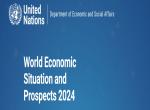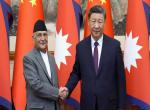‘Wisdom of China’: Hoary and Sublime
Scholars and strategists across the globe have always wondered at the excellence of China’s hoary strategic Wisdom. This is a Wisdom which is derived from cumulative teachings of the ‘Hundred Schools of Thought’ that flowered in Chinese civilisation from time to time since the Eighth Century BCE and continued to bloom off and on for over a thousand years. Defined and nurtured by political philosophies as propounded by the schools of Daoism, Confucianism, Mohism and Legalism, and further fine-tuned by centuries of experience in articulation of complex statecraft, that Wisdom had been instrumental in building up great attributes of astute statesmanship among the successive Chinese Empires. Though many times over the time-cycles that attribute had failed to arrest decline of the Chinese State, such downturns may not be attributable to loss of Wisdom in the state apparatus; there were extraneous factors at play, particularly after the 17th Century.
It is therefore rather strange that China’s Communist Regime, natural inheritors of that eternal Wisdom, could defy the pristine Wisdom to shoot its foot again and again!
Rule of Wisdom
The Chinese practice of statesmanship was built around cadres of highly trained, motivated and competent ‘Mandarins’ who were the repository of that hoary State Wisdom. This Mandarin class formed the core for an elaborate system of bureaucracy. In fact, irrespective of the ruling dynasty and the institution of Emperor which could come from the native Han stock as well as non-Han ‘barbarian’ lineages – Tibetan, Mongol, Khitan, Jurchen, even Turk-Uyghurs, for example – conduct of State business was invariably in the hands of these Mandarins, most of whom come from the Han stock. Considering those times, it was the Mandarins’ system of recording collective experiences and incorporating these into institutionalised policies and practices of statecraft that attributed to the excellence of the Chinese State’s external security and internal administration. Of course, there had been exceptions when the Mandarins’ bureaucratic apathy, infighting, nepotism, corruption and treachery had triggered collapse of the State apparatus – as indeed it happened at the fag ends of the Tang (618-907 CE), Song (960-1279 CE) and finally, the Late Qing (1860-1911 CE) Dynasties.
Apart from such exceptions however, the innate Wisdom of China generally prevailed over the manner the Empire ruled its far and widespread realm. Even in chaotic periods, when control over the realm was divided amongst various warlords and internecine bloodshed was common, that Wisdom had prevailed, more or less, to keep the basic State structure in function and allow it to conduct its business according to deliberately devised policies. That China did not ever suffer the ignominy of slavery nor had to succumb to the scourge of colonisation, bears testimony to that fact; even its 19th Century ‘humiliation’ at the hands of the western powers was little more than rejection of its self-ordained superiority over the disdained white ‘barbarians’.
Wisdom Disavowed
When viewed in the context of China’s contemporary policy articulations however, reflection of that traditional Wisdom appears to have faded in many instances of strategic significance. The reasons could be a mix of arrogance of newfound power, the test of keeping up with rising economic aspirations of the people and internal power struggle between the power-wielding coterie and its challengers – the rival power centres of Zhu De and Lin Biao in the past, and the current ones of the Ziang Zemin and Hu Jintao factions, for example. But whatever be the cause, it is the hapless neighbours who must be the first to suffer the Chinese regime’s repudiation of that sublime Wisdom, before the consequences start striking at the perpetrator’s own yard.
It began immediately after October 1949 when the Communist Party of China (CPC), Mao Zedong and Zhu De in lead, assumed power in China. Having captured the throne, the CPC leadership wasted no time in adapting to the imperialist impulse that came with the seat of power. Hereafter, it is a strange narrative of China’s rulers repeatedly contradicting their inheritance of strategic Wisdom. Even if well known, it would be in order to recount the major instances when China’s current regime chose to repudiate the centuries of accumulated Wisdom of statecraft, and the foresight it offered.
Trampling a People: Tibet
One of the CPC’s first acts was to invade a defenceless Tibet, a nation having nothing Chinese about it. Having ‘reclaimed’ their ‘sovereignty’ over a fundamentally foreign land, culture and ethnicity of Tibet, the hapless Tibetans were coerced into a ‘17 Point Agreement’. It was only a matter of time when every point of that Agreement was summarily repudiated, while Tibet’s distinct culture, geography and nationhood was enslaved by overwhelming force of assertive administration and a flood of Han migration. Ever since that outrage China has come to be identified with its impulsive subversion of neighbouring societies, thus losing out on other nations’ trust of a neighbouring giant. Disdainful rejection of Dalai Lama’s peace offers and the brazen policy of waiting for his passing away before installing their own puppet add to that universal disconcert.
Since its powerful rise, wariness of Chinese stratagem of enticing, cornering, binding and finally imposing on its neighbours - all of them smaller and militarily disadvantaged - is discussed widely, in hushed tones, but none of China’s neighbours are enthused by Chinese overtures, howsoever innocent these might appear to be. For any claimant of great power status, as indeed China is, that indeed is a great loss that goes against the prestige and trust it must enjoy to claim that distinction. A great power cannot be deaf to the cries of tormented neighbours.
Snapping a Trusted Friendship: 1962
Soon enough, the regime shot its foot again. Having launched into a ‘Great Leap Forward’ only to land upon stacks of its citizen’s skeletons, and so threatened by a deluge of internal dissent, it chose to attack India, its sole well-wisher, supporter and a best friend among the global community. In one stroke thus, it lost for ever the goodwill and trust of nearly one seventh of the humanity, a key neighbour, the region’s venerated religious destination and a potentially endowed partner in global politics and commerce. One can only imagine the range of accomplishments that could have accrued to China had it not pushed a friendly India out of its orbit.
Actually, there is no thorn in Sino-Indian relations but for the issue of India repudiating China’s territorial claims along the Indo-Tibet Border. Instead of being riled on this issue, the hoary Wisdom of China would have let the Chinese regime find better ways to resolve the differences – as indeed they have done in the past. In this instance however, a piqued China has preferred to boost Pakistan as its surrogate, besides breaching many norms of bilateral good practices. In the process it has diverted its recognition as a benign and naturally acceptable global power.
Exporting Destabilisation: the Neighbourhood
Meanwhile, under a fanatic affliction that the Communist ideology mandated them to convert the rest of the world, the CPC paid, armed and unleashed their brainwashed fiends to internally destabilise most of its East and South Asian neighbours – Indonesia, Malaysia, Cambodia, India, to list just a few - thus instigating untold mayhem of treachery and bloodbath upon them. The image of a capricious China was cemented thus. Seldom has a great power’s distraction from its inherent Wisdom been so stark and permanently self-injurious.
Company China Keeps: Rogues
The modern Mandarins had not been done yet. First, they entered into a land grabbers’ pact with Pakistan to ‘take-over’ India’s Shaksgam Valley. Then, as its brainwashed Red Guards went about destroying its own lofty cultural and intellectual inheritance under the garb of ‘Cultural Revolution’, China chose to share its unique nuclear status in Asia with such destabilised and destabilising states as North Korea and Pakistan. By nuclearising the irresponsible regimes in these states, China has not only promoted direct as well as second-hand nuclear proliferation, it has also allowed pigmies to share its exalted nuclear status and geo-political influence, which actually should have been its exclusive preserve.
Today North Korea has turned intransigent, even dismissive of China’s consternations, but having fattened the rogue, China can do little about it. Tomorrow Pakistan, seized by the impulse of its internal contradictions, could show thumbs to China, while the latter, trapped under deep economic and political dependency, would have no option but to curse and carry a silo around its neck - just as it has been experienced by the United States. By short-sighted expediencies thus, China has opened avenues for its current ‘deeper than ocean friends’ to drown it at a future date.
Notably, China’s one-sided animosity has forced India to go nuclear, thus impeding its own strategic options. And by tying its economic schemes to the Pakistan’s perpetually destabilised dispensation, it has left itself with no option but to acquiesce to Pakistan’s universally condemned terrorism and shield its mass murderer terrorists. Seldom has any regime so conclusively undermined its own international prestige, neither has any claimant to global power deflected from its rise so effectively.
Belying Self-prophecy: ‘Peaceful Rise’
Finally, after a period of Deng Xiaoping contrived quietetude, when it build up its economic, technological and military muscle, China seems to have repudiated its hoary Wisdom to turn its ‘peaceful rise’ into a nightmare for its neighbours. It begins with its outrageous claim over the entire South China Sea that sweeps right up to the littoral nation’s coast lines. Forcible occupation of the Gulf of Tongking and South China Sea islands, Han-isation of Tibet and Xinjiang, creeping territorial usurpations across the Indo-Tibet Border and buying military bases in the Indian Ocean Region where it need not, all these acts accompanied with hegemonic rhetoric, are but the manifestations of China’s latest impulse to shoot at its foot again. No doubt, to be a global power, China needs to possess strong military power, but the question that perplexes strategic analysts is as to why does China need such massive military build-up all across the Asian lands and oceans, unless it expects the fellow regional stake holders to physically resist certain actions that the Chinese plan to undertake in the coming years.
To be fair in the context of China’s business of ‘buying’ influence through economic colonisation, it may be argued that if elected governments of Nepal, Sri Lanka, Maldives and some East Asian nations deliberately offer themselves for infrastructural colonisation even when the shadow of future economic bondages and political interference loom, China can hardly be held responsible for that. In its present form, the China Pakistan Economic Corridor is one such scheme which has the potentials of outbreak of future clash of interests between the parties – one need not guess that dissatisfaction and antagonism would engulf both. It is a classical case of national rulers grabbing at immediate profits in the hope that when it came to the crunch, it would be possible to control adversities, and in the process drive themselves into trouble at a future date.
Territorial Grab: Steady Hustle
Among the incidents of ‘shooting own’s foot’, China’s recent venture into the Doklam Area of Bhutan takes the cake. Brushing aside a small and peaceful country’s small and peaceful interests, China sent its People’s Liberation Army (PLA) to capture areas where it has no business to be, leave alone to build a road. In the process, it left no choice for India but to come to Bhutan’s aid under the Indo-Bhutan Treaty obligations. The implications were stark: One, China undertook to undermine India’s sovereign treaty credibility; two, it arrogated the right to interpret, in unilateral and partisan manner, its previous international agreements; and three, it cornered a passive power, India, with no option but to stand its ground against the PLA juggernaut, even at the prospect of ominous possibilities. Simultaneously, by holding out loud threats of military aggression to ‘punish India for its defiance of Chinese diktat’ (sic) and linking it to nationalist sentiments among its tutored citizens, it narrowed down its options of pulling out of the disturbance it had created and adopt a mutually acceptable, peaceful resolution of differences. As for the Indian Army Chief’s certain responses over the confrontation, which had riled the Chinese media, it needs to be realised that these had come from an exasperated party who had an unwanted conflict imposed upon.
After China’s unnecessary, self-actuated two-month confrontation, China did bring about a conditional resolution of a non-issue that had been triggered by its dismissive attitude towards its modest neighbours. But before finding relief by the thought of Wisdom of China prevailing, the matter to appreciate are that: One, against the bullying rant of Chinese mouthpieces, India remained deferred to Chinese sensitivities, as indeed it should, given the power differential; and two, resolution of the stand-off, like its beginning, was China’s decision. China’s decision to back off, albeit conditionally, has been explained by considerations of its hosting of the Brazil, Russia, India, China, South Africa (BRICS) Summit, extreme belligerency of its northern nuisance North Korea, and the power equation within the Zhongnanhai, Beijing’s seat of power. More importantly from strategic point of view, the People’s Liberation Army (PLA) could not have chosen a more adverse terrain to ‘make India pay heavy price’ (sic), than the southern tip of Chumbi Valley, where its superiority could not have been brought to bear.
Notwithstanding this resolution, it would be self-deception on India’s part to take it as a new era of Sino-Indian understanding. Indeed, there can be no doubt that China’s platitude of the ‘five principles of Panchsheel’ would continue to be blared alongside its nonchalant repudiation. Hawkish elements in the CPC are unlikely to leave their quarry alone. Therefore, more of such intrusions and muscle flexing, accompanied by unnerving threats and stern ‘warnings’ may be expected in the coming days. As trends indicate, China’s ‘patience’ might ‘run out’ at a point when it would have no option but to ‘counter-attack in self-defence’, as the farcical rhetoric goes.
Invocation: ‘Wisdom of China’
Maybe in final analysis, the regime in Beijing would take cognisance of the historical fact that even if one succeeds in taking over its neighbour’s land or sea territories by its humungous military force, the latter’s sovereign rights over these territories remain in pended contention till the cycle turns at some future date. Wisdom also tells that regimes which cannot resist needling lesser neighbours are, beyond a point, liable to provoke resistance from a ‘coalition of the tormented’ – possibility of Japan, Vietnam, Indonesia, Philippines, Singapore, India etc. bracing together to weather the storm, for example. Cycles of rise and fall of powers as well as expansion and shrinking of territories usurped are facts historical after all.
As it is hoped, China’s hoary Wisdom would prevail. President Xi Jinping’s stoicism during the Doklam, and Raki Nala incident before that, gives that hope. A great nation of China’s Wisdom and international status and led by an astute leadership could mean, and show, what it preaches: its ‘peaceful rise’ for the benefit of all. Amen!
(The author is a Member of the Executive Council and a Distinguished Fellow at the VIF. This piece is an updated and expanded version of an Indian Defence Review web article, republished here with their permission.)
Image Source: http://travelwithjoshcohen.com/chinese-civilization-traditions-customs-china/











Post new comment